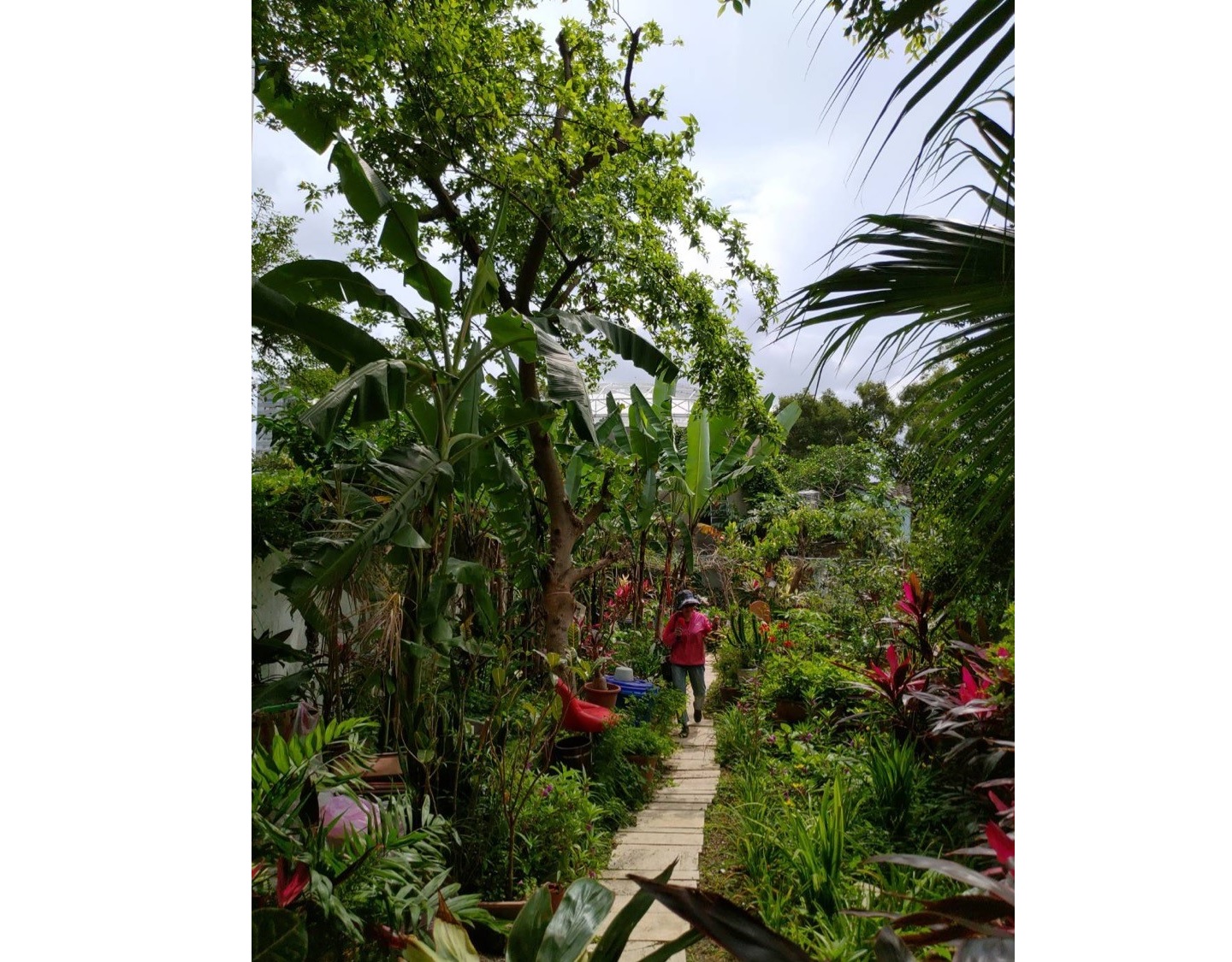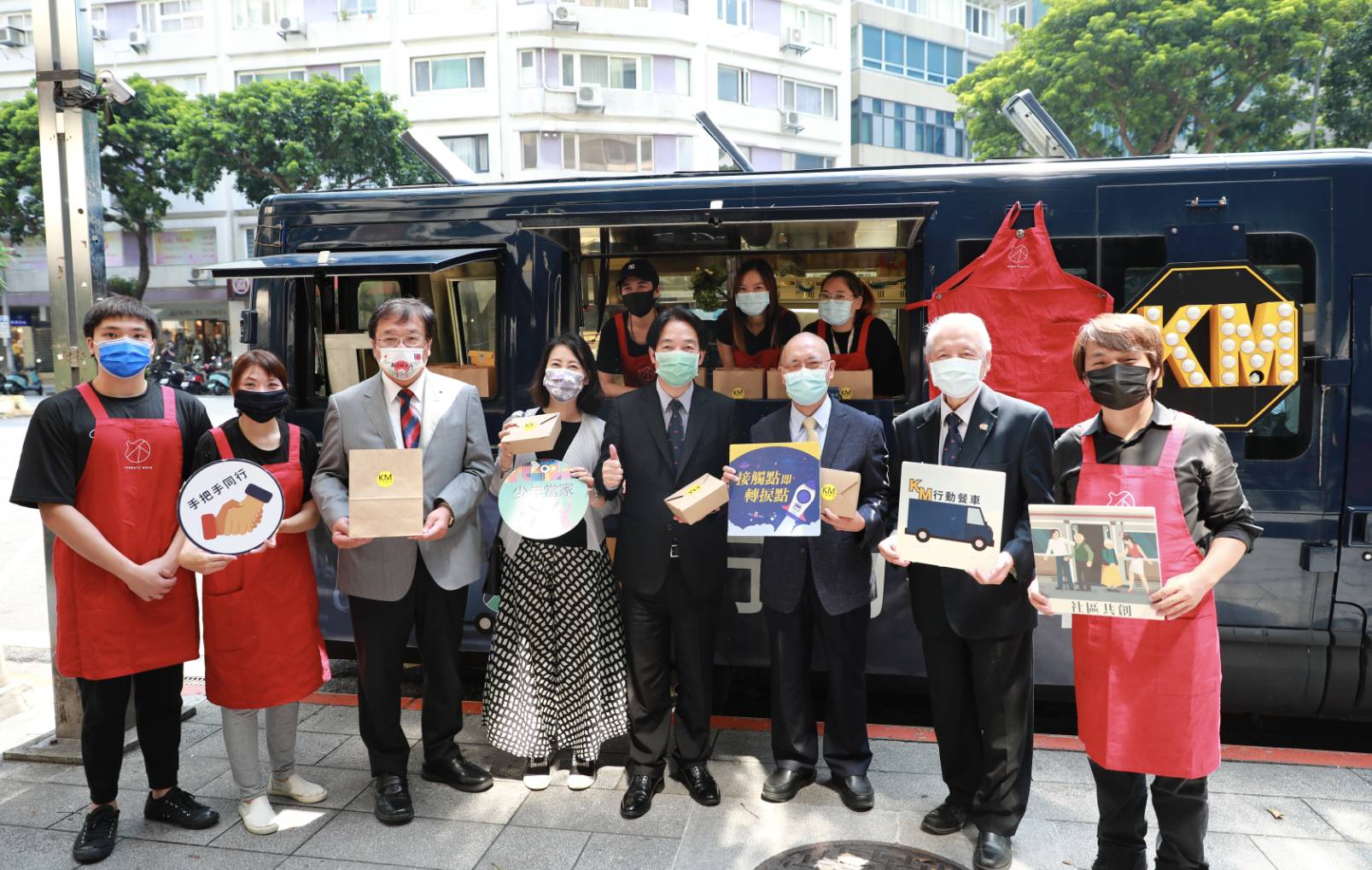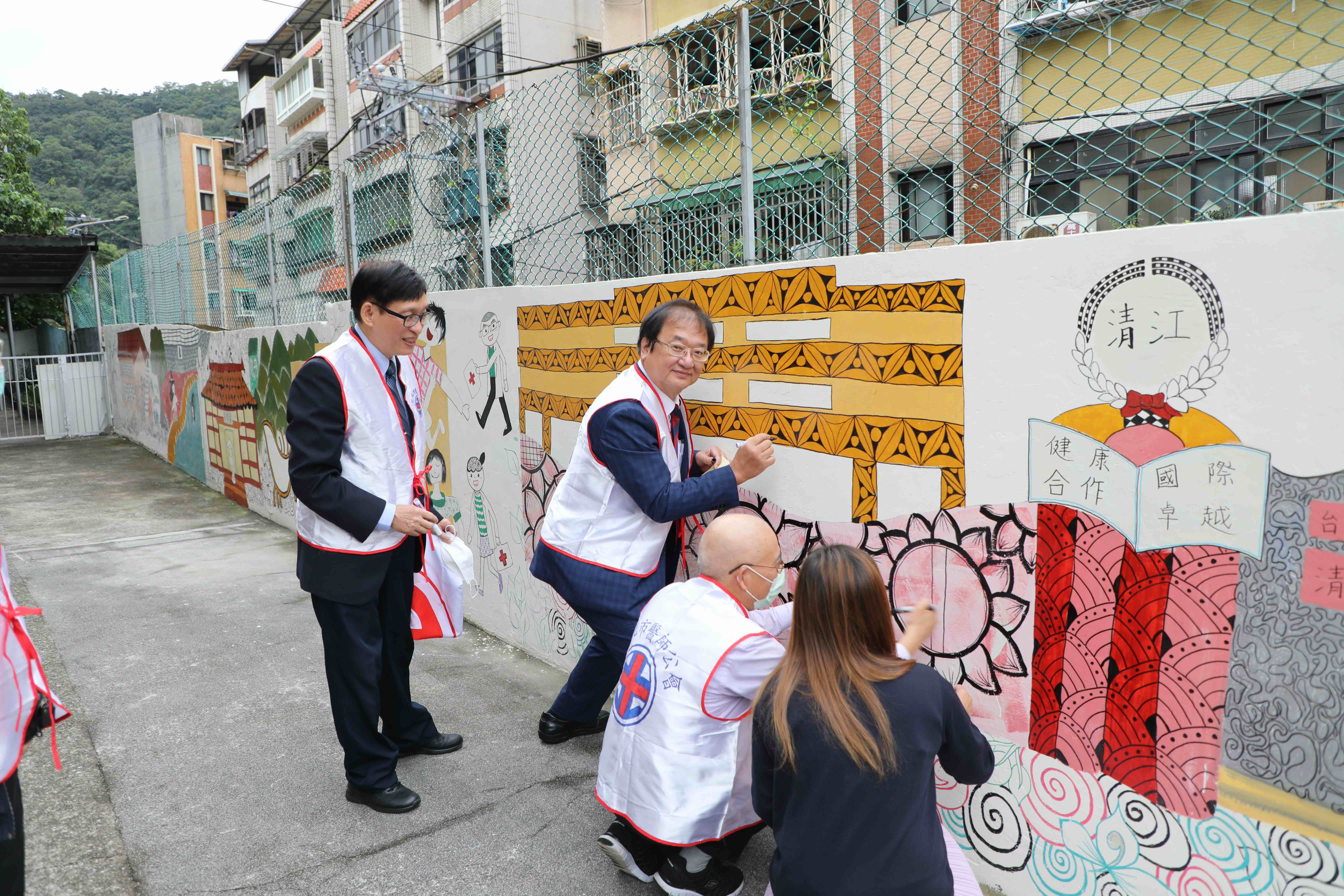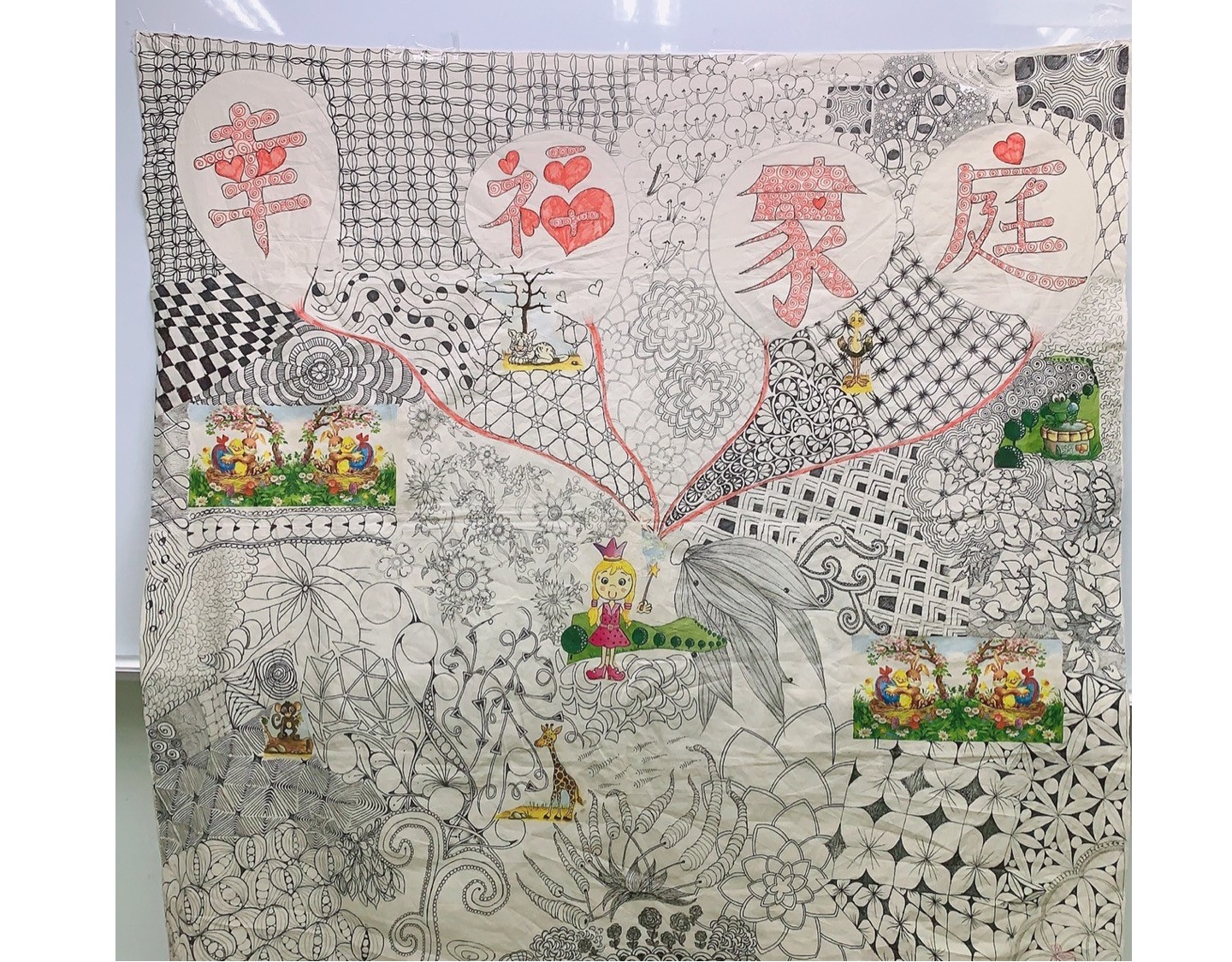|
Dr. Te-Jen Hung, former director of the Taiwan Community Empowering Society, has been operating an ENT clinic in Beitou for over 35 years. Beitou is also where he began dedicating himself to community affairs. In 1990, he took the
initiative to organize the "Neighborhood Doctors Association" with clinics in surrounding neighborhoods, turning industry rivalry into mutually beneficial friendly exchanges. In 2004, he even launched the "Community Medical Group"
facilitating collaborations between primary care physicians and teaching hospitals in terms of two-way referrals to safeguard the community’s health. For over a decade, Dr. Hung has also actively encouraged primary care physicians
to get into home medical care, gathering more experience through home disability care programs.
Incidentally, he also led the community actions to preserve and revitalize the Beitou hot spring public baths, and later founded the Peitou Culture Foundation. For more than two decades, the foundation has trained volunteer tour
guides, protected old trees and rivers, and organized markets, art festivals, and other events, revitalizing the local area. Dr. Hung is a firm believer that a healthy life comes from living in a healthy community, so whether he is
seeing patients or organizing public affairs, he is always striving to build a healthy community. Dr. Hong, who served as the director of the ROC Community Empowering Society (now the Taiwan Community Empowering Society) since 2018,
worked with the Taiwan Medical Association, Taipei Medical Association, and the Rotary Club of Taipei, North Taipei to organize the "International Forum of Social Prescribing in COVID-19 Pandemic," talking with experts in Japan and
South Korea about national and city-based social prescribing policy experiences.
Vice President Ching-Te Lai personally attended and gave a speech at the forum. This was also Taiwan's first experience organizing an international forum on the topic of the role social prescriptions can play in a pandemic.

International Forum of Social Prescribing in COVID-19 Pandemic (Image Source: Te-Jen Hung)
In the Face of Community Epidemic Prevention and Life After the Pandemic, the Era of "Health Promotion" is Here
From the SARS epidemic in 2003 to the COVID-19 pandemic in the past three years, Dr. Te-Jen Hung has stressed the importance of community epidemic prevention for over 20 years, recommending that clinics, community organizations, and
local medical institutions integrate resources with departments of health and the Department of Health, Executive Yuan (now the Ministry of Health and Welfare) to conduct relevant preparations: a reporting system, health education
related to infectious diseases, and the establishment of an outreach system for those isolated at home. These epidemic prevention systems put in place in the past, along with the cooperation and preparations of medical institutions
across the nation as well as local physician associations when Taiwan was beginning to face severe COVID-19 infections in 2020 was what Dr. Hung believed further strengthened the epidemic prevention system, playing a huge role in
preventing the spread of the epidemic in Taiwan.
Dr. Hung was also concerned about the public’s fear at the early stages of the pandemic, as well as the pressures and fears regarding the "new normal" of social distancing or even "isolation." By writing articles in periodicals, he
started the practice of promoting "social prescription" from seeing patients every day to community affairs. "When we talk about health, there are four aspects, including 'medical services,' 'long-term care,' and what we call
'prevention,' which includes prenatal check-ups and vaccinations against viruses; the fourth aspect is something Taiwanese people are rather unfamiliar with, it's called 'health promotion,' and it's about enhancing the interactions and
care between people through their living environments, thereby maintaining mental and physical health." "Social prescription" focuses on the "prevention" and "health promotion" aspects of healthcare, but what exactly do these
prescriptions entail? How do we "obtain" and "follow" these prescriptions?
Functions and Key Elements of Social Prescriptions
"The basic concept of social prescription is using non-medical interventions to help individuals, families, or groups rediscover their way in life through diverse, creative, and fun models." Dr. Hung talked about how the UK had already
established a social prescription system integrated into the national insurance system of National Institutes of Health (NHI) so that primary medical institutions like clinics and GPs could refer those in need to social resources,
finding suitable methods to help patients from a holistic health perspective. This includes exercising, social activities, psychological counseling, activities like singing, painting, or handicrafts. These methods are people-oriented,
meaning they require the possibility of customization. "What functions does social prescription have? It makes our mind more joyful and calm, strengthens social connection, and allows people to live independently but not be isolated
from each other."
Regarding how to successfully operate social prescribing to improve people’s health and lives, Dr. Hung proposed the following key elements: 1. Establish a convenient referral mechanism, such as a channel to inform the public that there
are many options regarding social prescriptions. Referrals to institutions for certain treatments also require a degree of convenience; 2. Develop social support capabilities; 3. Implement shared performance assessment mechanisms; 4.
Create customized support plans; 5. Support and strengthen community organizations; 6. Establish partnerships and commitments. It is therefore evident that the keys to operating these social prescriptions require relevant professionals,
interdisciplinary collaborators, and open social consensus to help those in need overcome challenges and restore their mental and physical health.

Gardening Therapy (Image Source: Te-Jen Hung)
Case Study: Social Participation Prescription as a Positive Force
In 2021, during the COVID-19 pandemic, a friend asked Dr. Hung about resources for group therapy. The friend led a food cart operated by a group of at-risk teens whose business was affected by the pandemic. He worried that the kids
would return to having no support system while they were out of work. Dr. Hung suggested a different way to support these teens. The kids came up with the idea to thank the hardworking healthcare professionals on the epidemic prevention
front lines with their expertise by making handmade burgers and writing cards. "Proactive positive force and the desire to thank others, isn't that the best group therapy?" Therefore, Dr. Hung contacted 10 hospitals and raised funds for
food ingredients from the community. The food cart project not only warmed the hearts of medical professionals, but also gave the teens a sense of achievement. Such a proactive course of action before the need for group therapy is an
example of rediscovering support through the prescription of social participation.

Dedicated Volunteer Service (Image Source: Te-Jen Hung)
Dr. Hung also talked about how, back in April and May of 2022 at the height of the pandemic, a group of children with cerebral palsy sponsored by the Hung ENT Clinic in a shelter, as well as the shelter’s staff, all caught the virus. In
response, Dr. Hung arranged video consultations to care for these children and staff members. A month later when Dr. Hung visited the facility, he found that some illegal structures were being torn down. The old building structure and
the recovering patients created an atmosphere of low energy; therefore, Dr. Hung decided to do something with the patients. He found a dilapidated old wall that was 35 meters long and 2.5 meters high, which made for the perfect canvas
to paint a picture of hope. "Letting the community participate in something together can bring new hope." Therefore, Dr. Hung invited Mei-Li Chueh, an instructor of Zentangle art at Beitou Community College to come up with a sketch. In
addition to the patients, doctors taught by Dr. Hung and members of the Taipei Medical Association and Taipei Women’s Association all participated in the mural painting. "This was really a small thing, but it fully met the definition of
social prescription, combining positive social energy. It's about using group influence to lead those who are under pressure to newfound hope in life. The process itself is a form of group therapy." I think we can all agree that there
are many ways to find an outlet in life, and a small action can be a key link to greatly improving people's health.

Working Together to Paint the Wall (Image Source: Te-Jen Hung)
Community Care Stations Are an Important Part of Social Prescriptions
There are currently around 4,500 community care stations across Taiwan that provide activities for local senior citizens in their day to day life. These activities may seem like just fun and games, said Dr. Hung, but they have long been
implementing local social prescriptions in communities large and small across Taiwan, such as teaching senior citizens how to exercise at home to stay healthy, teaching illiterate senior citizens to read and relax with karaoke, or
having senior citizens who can read recite the Three Character Classic or Di Zi Gui. Through measurements and tracking records, Dr. Hung found that learning activities can stimulate the brain and improve blood circulation, which is very
beneficial to physical health.

Zentangle Drawings by Senior Citizens with Dementia (Image Source: Te-Jen Hung)
"Doing something together" made senior citizens healthier and happier, reducing the risk of depression. "We can see the changes in these senior citizens. There is value and meaning to these senior citizen learning activities we are
promoting. They are all part of social prescribing." How to continue motivating professionals in different fields to invest in community care services, convince working professionals and elders of the value in such services, and give
medical professionals a better chance of utilizing national and community resources, integrating front-end health promotion and medical care to reduce the back-end cost of medical treatments and long-term care have been goals that Dr.
Hong sincerely hopes and continues to take the lead in trying to accomplish. Communities are the base of life, and the base for implementing social prescriptions. Hopefully everyone can become aware of this and work together for a
healthy life in their respective roles.
About Dr. Te-Jen Hung:
After graduating from the School of Medicine at Taipei Medical University in 1986, he became a community doctor in his hometown, which had been his dream since childhood. Whether it’s a disease or social issue, he likes to approach
issues from a holistic perspective as he continues to care and take relentless actions. With Taiwan facing a rapidly aging population, Dr. Hong believes that it is important to work on establishing localized community health care
systems and moving people with the value of life so that disadvantaged populations can receive local care.
(Interview Editor: Ling-Ying Huang)
Reviewed by: Te-Jen Hung
Authorization in this article:CC3.0 BY-NC-SA
|








